Jan 25, 1986: Albert Grossman, ex-Dylan Manager, Dies
by Best Classic Bands StaffOne of the best music books of 2016 was Small Town Talk: Bob Dylan, The Band, Van Morrison, Janis Joplin, Jimi Hendrix and Friends in the Wild Years of Woodstock, by Barney Hoskyns [available here]. It tells of how a bucolic pit stop in upstate New York became a mecca for musicians in the mid-’60s and early ’70s, attracting many of the most creative talents of the era, including those name-checked in the subtitle.
But that subtitle makes no mention of the man around whom that entire scene flourished. Albert Grossman is truly the main character of Small Town Talk, a larger-than-life figure who nurtured many of the artists who came to call Woodstock home but ultimately—in the eyes of many of them, including Dylan—became an insufferable boor. Grossman was the hub around which the Woodstock music scene swirled; he was also its villain.
Albert Bernard Grossman was born May 21, 1926, in Chicago, getting his start in the music biz in the mid-’50s, where he ran a folk music club, the Gate of Horn, In 1959, with George Wein, Grossman organized the first Newport Folk Festival. As the ’60s dawned, he began managing artists working within that milieu, which was beginning to show great commercial promise thanks to college students, and before long Grossman was gathering other new acts into his burgeoning stable of artists: He put three singers together into a folk group called Peter, Paul and Mary and guided them to #1 albums and even hit singles. And of course there was Dylan. Grossman knew the kid had something and he stopped at nothing to make sure the world came to know him too.
Grossman is depicted in the 2024 Dylan biopic A Complete Unknown.
Dylan eventually came to live with Grossman in Woodstock (the cover photo of Dylan’s Bringing It All Back Home was shot in Grossman’s home) and would later record with a group of mostly Canadian musicians just outside of Woodstock at a home they rented. The home was called Big Pink; the musicians became known as The Band.
Related: Small Town Talk on Woodstock’s music scene reviewed

Bob Dylan and Sally Grossman in the Grossman’s Woodstock home. The location provided the cover art for Dylan’s Bringing It All Back Home album.
Those inside the business also came to know Grossman. He was a large man with a ponytail long before that became fashionable among men. He got things done, made money, built a recording studio, a record label and a theater, pissed people off just by being who he was and never changed his ways, regardless of the consequences. He was indispensable and yet artists came to despise him even while they admired him.
In his memoir, Chronicles: Volume One, Dylan wrote, “He looked like Sydney Greenstreet from the film The Maltese Falcon, had an enormous presence, always dressed in a conventional suit and tie, and he sat at his corner table [at a New York folk club]. Usually when he talked, his voice was loud like the booming of war drums. He didn’t talk so much as growl.”
Related: Dylan’s Woodstock brush with death
Yet into his orbit they came: Todd Rundgren, Gordon Lightfoot, Janis, Odetta, Richie Havens, Paul Butterfield, Phil Ochs and so many others. By the beginning of the ’70s, most of them had fled. There were angry accusations of financial improprieties. There were lawsuits and trials and, as time went on, even as those he championed left him behind, bad-mouthing him along the way. The ever-eccentric Grossman had become something of a hermit while buying up properties and watching Woodstock become world-famous, and he continued to act as if nothing had gotten in his way.
On January 25, 1986, Grossman was on a Concorde flight to Europe to attend a music business convention when he suffered a heart attack and died.
Watch Albert Grossman in a scene from the Dylan documentary Dont Look Back

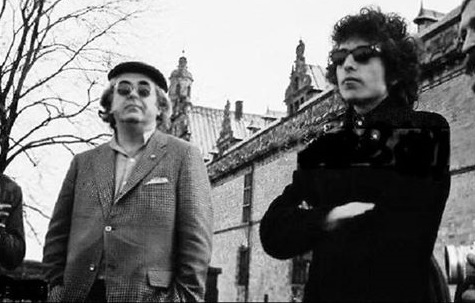

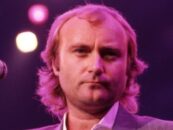
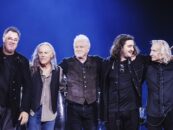
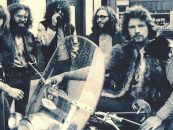
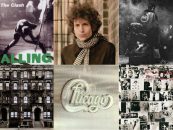

1 Comment so far
Jump into a conversationIf you get the chance, read the book, This Wheel’s on Fire: Levon Helm and the Story of the Band and decide for yourself